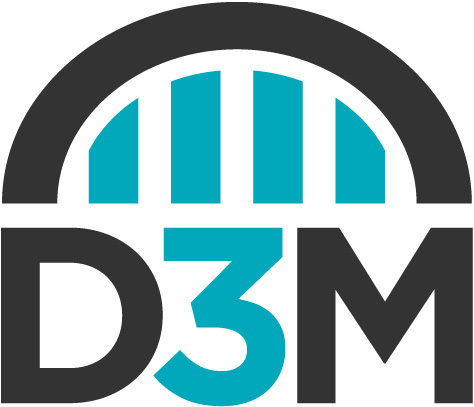Summary
“Who will guard the guards themselves?” This question, first posed millennia ago by the Roman satirist Juvenal, remains depressingly relevant when discussing Lebanon’s compromised judiciary. Lebanese judges bear the constitutional responsibility of holding those in power to account; in practice, judicial officers lack true independence from the country’s political, military, and business elites. On a structural level, the judicial system makes Lebanese judges beholden to the nation’s craven sectarian leaders to maintain their privileged positions. Anecdotally speaking, allegations abound of judges shielding powerbrokers and allowing them to operate above the law.
Lebanon’s lack of judicial independence matters, not least given the total absence of accountability following the 2020 Beirut port explosion. Through their complicity with corrupt elites, compromised judges have facilitated egregious human rights violations: from trampling citizens’ property entitlements to withholding justice for torture victims.
Yet a challenge remains for activists, policymakers, and other stakeholders seeking to raise public awareness about these crucial issues: evidence. While a judge’s bias sometimes manifests in brazen and clearly observable forms, more often we must piece together a violation from the shadowy circumstances. Despite this challenge, this position paper provides two case studies for examining the devastating impact of lacking an independent judiciary on two human rights: freedom from torture, and the right to own property.
The Problem
Over the years, Lebanese legal activists and international organisations have comprehensively analysed the structural basis for the country’s lack of judicial independence. First and foremost, the executive wields excessive power of the judicial appointment process, not to mention judges’ salaries and benefits. This means that, on its face, judges are systematically disinclined to make determinations that might offend executive members, lest those political elites appoint more compliant judges and/or reduce the sitting judges’ entitlements.1 The Ministry of Justice can further influence the selection of judges courtesy of recent reforms to the judicial entrance exam, which now has a larger oral (and therefore subjective) component.2 Against the backdrop of these structural incentives to appease politicians, the law subjects judges only to light restrictions on reaching improper determinations. Attempting to sway or influence a judge remains a mere misdemeanour, punishable by a minor fine.3 And, although judges must face disciplinary proceedings for alleged misconduct, those proceedings are strictly confidential, meaning that the public cannot scrutinise their outcome.4 As such, the current system gives the executive broad licence to appoint compliant judges and protect improper decisions from review.
Similarly, legal activists have made cogent proposals for promoting greater levels of judicial independence. In March 2018, Legal Agenda tabled a draft law on judicial independence in partnership with the “Coalition for the Independence of the Judiciary” (the Judicial Independence Coalition), an issue-focused association of 30 different civilian bodies. Importantly, the draft law responded to a petition signed by 352 judges in 2017, which called for new legislation to bring Lebanese judicial independence laws into line with international standards. The proposed reforms addressed much-needed changes, such as the impartiality of the appointment process for judges (including the formation of a less compromised Supreme Judicial Council), standardised remuneration packages, making judicial disciplinary proceedings more transparent, strengthening anti-corruption measures for judges, and reforming the Public Prosecutor’s office.5 If implemented, these reforms would address systemic factors that militate against the judiciary being truly independent.
Yet, despite clear identification of the issues surrounding judicial independence, political appetite for these much-needed reforms remains weak. Since the 2018 judicial independence reforms were submitted, the Parliament still has not enacted the proposed legislation. Instead, the reforms “are still subject to pruning and procrastination in the Parliament” according to Wadad Halawani, a Judicial Independence Coalition representative. Halawani’s comments reflect a fear that the relevant parliamentary committee will severely dilute, or just indefinitely stall, the proposed reforms. In fact, so much time has elapsed since the initial reforms were tabled that, in March 2021, MP Osama Saad and the Judicial Independence Coalition announced that they had submitted another, supplementary legislative reform package to Parliament. In June 2021, attorney and civil society activist Melham Khalaf asserted that this latest set of proposals included the independence of administrative courts, such as the Shura Council, which similarly struggle to maintain autonomy under the current system. Yet, as demonstrated by recent events, the Shura Council itself has remained beleaguered by accusations of bias and favouritism, along with the court system at large. Meanwhile, as ever, the proposed judicial independence reforms remain unapproved by the indolent Parliament.
Making the Problem Relatable
To stimulate the required political will for implementing reforms, it is essential to demonstrate the practical impact of Lebanon’s compromised judges. As above, the crucial question is not what should be done to make the judiciary more independent, but rather why these reforms matter. Armed with this evidence, opposition groups should lobby policymakers to prioritise and expedite judicial independence reforms, which can address the adverse consequences of the current system. This position paper proposes to establish the case for reform by demonstrating the negative impact of a lack of judicial independence. The two case studies below demonstrate how lacking judicial independence facilitates the violation of two fundamental human rights: freedom from torture, and individual property entitlements.
Freedom from torture
A lack of judicial independence could facilitate Lebanese security forces to torture citizens, in violation of their basic human rights. The Lebanese Penal Code, as amended by Law 65/2017, establishes a clear prohibition on the use of unlawful “hardship” to extract a confession or information from a detainee. Under the legislation, any person found guilty of breaching this provision must serve a jail term from three months to three years. The same article adds that a person who causes illness or injury with such acts faces at least one year of imprisonment. The 2017 anti-torture reforms responded to a glaring deficiency in Lebanon’s criminal legislation, which did not contain any provisions criminalising torture and other cruel, inhuman, or degrading treatment.6 Lebanese security forces had abused this effective carte blanche. As one horrifying example, the Lebanese Armed Forces provoked a public outcry by allegedly torturing four Syrians to death while in custody.7 It was hoped that the passage of Law 65/2017, just three months later, would seriously reduce the likelihood of interrogation-by-torture occurring in the future.
While the amended legislation clearly stated the new anti-torture offences, loopholes have remained for intervention from political and security elites. Under the 2017 anti-torture amendments, the Penal Code did not explicitly state that military courts should not preside over cases brought under the anti-torture provisions. This means that public prosecutors have space to argue for referring torture allegations to courts comprising of judges from the same institutions accused of committing torture. In this context, a clear conflict of interest arises between a military judge’s obligation to determine torture allegations and professional allegiance to Lebanon’s security forces. Indeed, other legislation effectively resolves this dilemma for military judges: in favour of the military. While holding judicial office, military judges remain directly subordinate to the Minister of National Defence, who controls both their appointment and discipline. In these circumstances, Lebanon’s security forces can directly interfere with torture proceedings brought against them in military courts.
In practice, this compromised system has left alleged torture victims without protection from the judiciary. An Amnesty International report noted that most torture complaints have not reached court since the 2017 anti-torture amendments, reflecting a lack of political will to implement the law.8 In the rare instance that torture proceedings do come before a judge, Lebanese security forces can avail themselves of the military courts and their lack of judicial independence. For instance, Lebanese actor and activist Ziad Itani claimed that he was tortured during three and a half months of detention, before being released of espionage charges. After his release, Itani attempted to bring criminal proceedings in civilian courts against the security officials who had participated in his torture, alongside with other offences. Instead, the Public Prosecutor at the Court of Cassation referred Itani’s case to a military court, despite international law requiring that his trial occur before a civilian judge.9 The Prosecutor’s referral also arguably violated Lebanese criminal procedure laws, which confers jurisdiction on civilian courts to hear civilian complaints about Lebanese security forces.10 To date, Itani’s alleged torturers have not been brought to justice before an impartial, non-military court.
A similar fate befell an action brought on behalf of 17 protesters in Lebanon’s 2019 uprising, who brought proceedings for their treatment during detainment under the anti-torture laws and other criminal provisions. The Public Prosecutor referred the complaints to the Military Prosecutor, who ordered the agencies accused of committing torture (Military Intelligence and Internal Security Forces) to investigate the matters.11 No action has taken place as, like Itani’s case, Lebanon’s security forces deflect accountability by means of the non-independent judiciary.
Right to own property
In June 2021, the Shura Council exhibited a remarkable level of judicial bias in handling an infringement of Lebanese citizens’ right to own individual property. On 2 June, the Shura Council announced a preliminary determination that Circular 151, a decree issued by the Banque du Liban (BDL), Lebanon’s central bank, was unlawful. Circular 151 had required that Lebanese banks only allow depositors with US dollar-denominated accounts to withdraw US dollars at the rate of 3,900 LBP, as opposed to the official rate of 1,507 LBP. This decree purported to be a unilateral amendment of the depositors’ original contractual terms, which provided for repayment at the official rate, while also compromising their right to own individual property. On 3 June, the Shura Council president met with Lebanese President Michel Aoun and BDL governor Riad Salameh. After the meeting, Salameh announced that Circular 151’s implementation would resume, despite the initial determination that the decree was invalid.12
In interviews, several legal experts decried the Shura Council’s about-face as a damning indictment of the judiciary’s lack of independence from the executive. First and foremost, the Lebanese constitution prohibits such informal meetings between the executive (as represented by the President) and the judiciary, pursuant to the separation of powers doctrine. Second, it is unlawful for a party to a proceeding (in this case, BDL as represented by Salameh) to attend such a private meeting with the judiciary and lobby for a different legal outcome. Third, the meeting arguably breached Article 419 of the Penal Code, which prohibits any person from soliciting a preferred judicial determination from a judge.13 Finally, circumstantial evidence indicates that the Shura Council likely agreed to reverse its decision due to pressure exerted by Aoun and/or Salameh during the meeting. The Shura Council has the power to modify a preparatory determination, such as the ruling on Circular 151, without resorting to a public retraction. Given that the Shura Council did not avail itself of these mechanisms, it remains more than open to conclude that a lack of judicial independence is the main reason for allowing Circular 151 to continue in force.
Policy Recommendations
Legal
To promote judicial independence reforms, progressive actors in Lebanon can support sympathetic MPs and opposition groups in advocating for the actionable legislative recommendations elucidated by activist organisations. These proposals include:
- Creating the legal framework for a truly independent Supreme Judicial Council
- Reducing the Ministry of Justice’s role in appointing judges
- Aligning judges’ wages and entitlements with those of parliamentarians and ministers
- Making disciplinary proceedings public
- Increasing penalties for offering illicit inducements to judges
- Repealing the power of military courts to try civilians
Opposition groups
Opposition groups can work together to increase the likelihood of public opinion supporting the proposed reforms, and therefore pressuring politicians to pursue the necessary changes through awareness-raising campaigns. Specifically, the campaign can feature practical case studies that make the issue of judicial independence more relatable to a wider audience. This position paper has provided two examples of how a compromised judiciary can fail to defend Lebanese citizens’ basic human rights to be free from torture and own individual property.
Administration
Opposition groups can constructively engage with the Beirut Bar Association and other industry peak bodies to devise and implement monitoring systems for judicial behaviour. This step would prove especially important if the proposed judicial independence reforms are enacted, given that state institutions still cannot be relied upon to prevent elite interference in the judicial process. These monitoring systems could track allegations of questionable judicial appointments, corruption of judges, and undue influence over judicial outcomes in specific cases.




